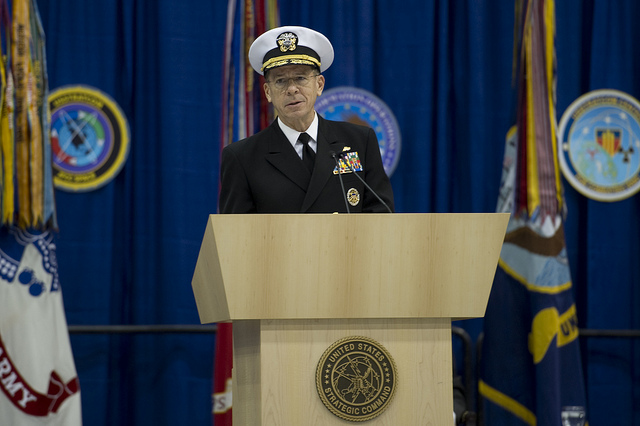
From the 2011 National Military Strategy of the United States: NATO will remain the most powerful military alliance, though some of its states are reducing defense spending as part of broader austerity measures. These reductions may impact partner nations’ contributions to our collective security. …
The Nation’s strategic objective in this campaign is to disrupt, dismantle, and defeat al Qaida and its affiliates in Afghanistan and Pakistan and prevent their return to either country. Success requires the Joint Force to closely work with NATO, our coalition partners, Afghanistan, and Pakistan. …
NATO will remain our Nation’s preeminent multilateral alliance and continue to drive our defense relations with Europe. The Joint Force will continue to cooperate to combat violent extremism, focusing on our mission in Afghanistan and support to Pakistan. We will also support the new strategic concept including space and cyberspace security, Ballistic Missile Defense, counter-trafficking, and nonproliferation – and pursue mission specialization that contributes to complementary capabilities. We will pay close attention to how this institution adjusts to its members’ reductions in defense expenditures to ensure the Alliance maintains the capability for full spectrum operations.
NATO members act as a stabilizing force on its perimeter, which ranges from the Middle East and the Levant, Northern Africa, the Balkans, and the Caucasus. Turkey can play a uniquely critical role in this regard. We will actively support closer military-to-military relations between the Alliance and Europe’s non-NATO nations, some of which have reliably contributed to trans-Atlantic security for decades. As we strengthen our European alliance, we will increase dialogue and military-to-military relations with Russia, building on our successful efforts in strategic arms reduction. We seek to cooperate with Russia on counter-terrorism, counter-proliferation, space, and Ballistic Missile Defense, and welcome it playing a more active role in preserving security and stability in Asia.
Excerpts from the 2011 National Military Strategy of the United States, released by the Chairman of the Joint Chiefs of Staff Admiral Michael Mullen. (photo: Specialist 1st Class Chad J. McNeeley/DoD)
Image: DoD%202%209%2011%20Adm.%20Mike%20Mullen.jpg

